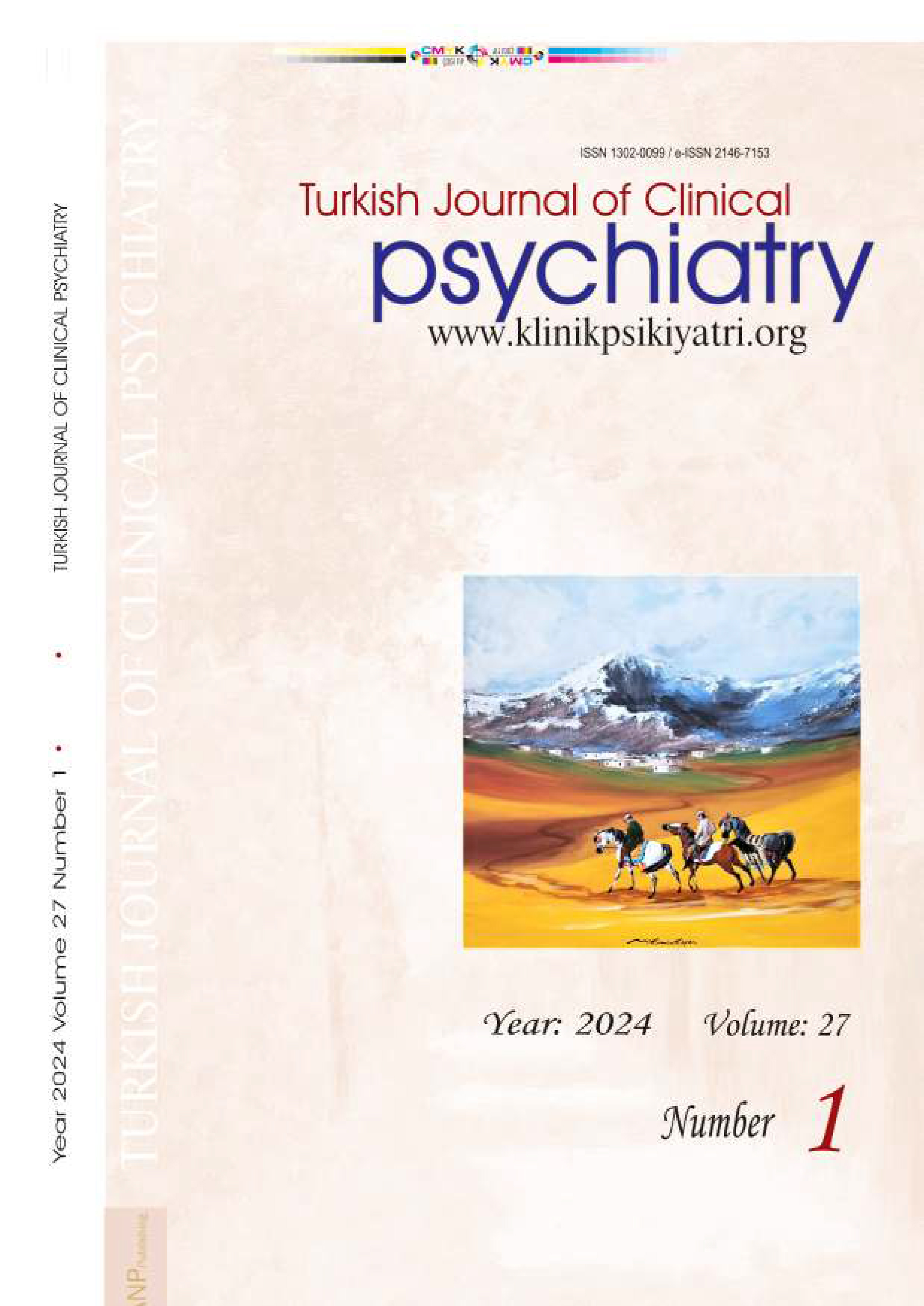
Psychosocial Effects of Epilepsy
Remzi Oto1, İsmail Apak2, Abdurrahman Altındağ31Tprof. Dr., Dicle Üniversitesi Tıp Fakültesi Psikiyatri Anabilim Dalı2Yrd. Doç. Dr., Nöroloji Anabilim Dalı, Diyarbakır
3Yrd. Doç. Dr., Harran Üniversitesi Tıp Fakültesi Psikiyatri Anabilim Dalı, Şanlıurfa
Objective: Psychosocial problems may result directly from the epilepsy or its treatment or indirectly from the consequences of living with a seizure disorder. Seizures can impair their ability to obtain education, to work, to drive, to establish families, and to develop and maintain social relationships. The purpose of this study was to analyze the impact of seizures on everyday life and the effects of epilepsy on health status and psychosocial outcomes. Method: The present study conducted at Dicle University Research Hospital. Thirty-six patients (21 males, 15 females) diagnosed as epilepsy at neurology outpatients clinic were included in the study. Of the 36 patients 50% had generalized epilepsy. The Epilepsy Psycho-Social Effects Scale (EPSES) was administered to the patients. The EPSES was translated into Turkish by our research team. Results: The areas of problems most commonly experienced were fear of having seizures, lethargy/lack of energy and attitude towards accepting the seizures. The areas of problems less commonly experienced were lack of confidence about traveling, lack of confidence about the future difficulty and communicating with the family. Conclusion: Epilepsy appears to be commonly associated with psychosocial problems. It is important for everyone who involved epilepsy treatment recognize the spectrum of issues facing patients with epilepsy. For this reason, collaboration among patients, families, neurologists and mental health professionals is necessary to relieve psychosocial problems and to improve the life quality of people with epilepsy.
Keywords: Keywords: Epilepsy, seizure, social functioning.Epilepsinin Psikososyal Etkileri
Remzi Oto1, İsmail Apak2, Abdurrahman Altındağ31Tprof. Dr., Dicle Üniversitesi Tıp Fakültesi Psikiyatri Anabilim Dalı2Yrd. Doç. Dr., Nöroloji Anabilim Dalı, Diyarbakır
3Yrd. Doç. Dr., Harran Üniversitesi Tıp Fakültesi Psikiyatri Anabilim Dalı, Şanlıurfa
Amaç: Epilepsi ile ilişkili psikososyal sorunlar doğrudan epilepsiye, uygulanan tedaviye ya da dolaylı olarak bu hastalık ile yaşamanın sonuçlarına bağlı olabilir. Tekrarlayan nöbetler hastaların eğitimini, iş hayatını, araba kullanmasını, aile kurmalarını ve sosyal ilişkiler kurmalarını ve geliştirmelerini engelleyebilir. Bu çalışmanın amacı nöbetlerin günlük yaşantıya ve epilepsinin bireyin sağlığı ve psikososyal işlevselliği üzerine etkilerini ölçmektir. Yöntem: Bu çalışma Dicle Üniversitesi Araştırma Hastanesi'nde gerçekleştirildi. Nöroloji Polikliniğinde epilepsi tanısı almış 36 hasta çalışmaya dahil edildi. Hastalara Epilepsi Psikososyal Etki Ölçeği (EPSES) uygulandı. Bulgular: En çok sorun yaşanan alanlar nöbet geçirme korkusu, letarji/enerji azlığı ve nöbetleri kabullenmeye dönük tutum şeklinde sıralanmakta idi. En az sorun yaşanan alanlar seyahat etmekle ilgili güvensizlik, gelecekle ilgili güvensizlik ve aile ile iletişimde zorluk idi. Sonuç: Epilepsi tedavisi ile ilgilenen herkes için hastaların yaşadığı sorunları tanıyabilmek ve başa çıkma yöntemlerini bilmek önemlidir. Bu amaçla, hastalar, aileler, nörolog ve ruh sağlığı çalışanları arasındaki işbirliği epilepsisi olan kişilerin psikososyal sorunlarının giderilmesi ve yaşam kalitesinin arttırılması açısından gereklidir.
Anahtar Kelimeler: Anahtar Sözcükler: Epilepsi, nöbet, sosyal işlevsellikManuscript Language: English
(2817 downloaded)




